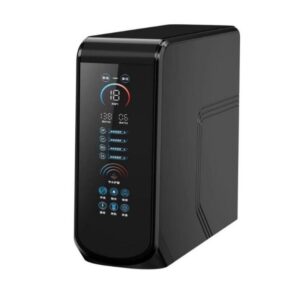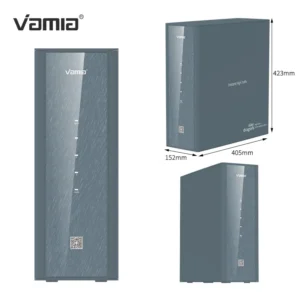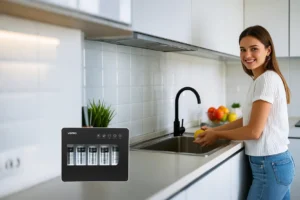Are Imported Filters Really Better? Debunking the Hype
The belief that imported water filter cartridges are inherently superior to domestic ones has become a common narrative in the market,
but this assumption often overlooks key factors that determine a filter’s true effectiveness. Let’s separate fact from fiction and explore
why “imported” doesn’t always mean “better.”
but this assumption often overlooks key factors that determine a filter’s true effectiveness. Let’s separate fact from fiction and explore
why “imported” doesn’t always mean “better.”

First, imported filters often come with a premium price tag, justified by claims of stricter quality standards or advanced technology. While
some international certifications are rigorous, many domestic filters also meet or exceed these standards. Regulatory bodies in various
countries enforce strict testing for contaminant removal, ensuring that both imported and local options adhere to safety guidelines. The
difference often lies in marketing rather than measurable performance.
some international certifications are rigorous, many domestic filters also meet or exceed these standards. Regulatory bodies in various
countries enforce strict testing for contaminant removal, ensuring that both imported and local options adhere to safety guidelines. The
difference often lies in marketing rather than measurable performance.
Another issue is compatibility. Imported filters are designed for water conditions in their country of origin, which may differ significantly
from local water profiles. For example, water in some regions has high mineral content, while others struggle with industrial pollutants.
A filter optimized for European water, with its unique set of contaminants, may not perform as well in areas with heavy agricultural runoff
from local water profiles. For example, water in some regions has high mineral content, while others struggle with industrial pollutants.
A filter optimized for European water, with its unique set of contaminants, may not perform as well in areas with heavy agricultural runoff
or distinct geological mineral deposits. Domestic filters, by contrast, are often tailored to address local water challenges, making them
more effective in removing region-specific contaminants.
more effective in removing region-specific contaminants.

Storage and transportation can also compromise imported filters. Many rely on delicate materials like activated carbon, which degrades
over time when exposed to moisture or extreme temperatures. Long shipping times and variable storage conditions can reduce their
adsorption capacity, meaning they may not last as long or filter as effectively as advertised by the time they reach consumers.
adsorption capacity, meaning they may not last as long or filter as effectively as advertised by the time they reach consumers.
Water Purifier Factory, Water Purifier For Home, Water Purifier Machine,Water Purifier, Water Filter Purifier System
When choosing a filter, focus on what matters: third-party certification for the specific contaminants in your water, compatibility
with your purifier, and clear guidelines for replacement. Whether imported or domestic, the best filter is one that reliably delivers
clean water tailored to your home’s needs. Don’t fall for the imported hype—look for performance, not a label.Are Imported Filters Really Better? Debunking the Hype
with your purifier, and clear guidelines for replacement. Whether imported or domestic, the best filter is one that reliably delivers
clean water tailored to your home’s needs. Don’t fall for the imported hype—look for performance, not a label.

